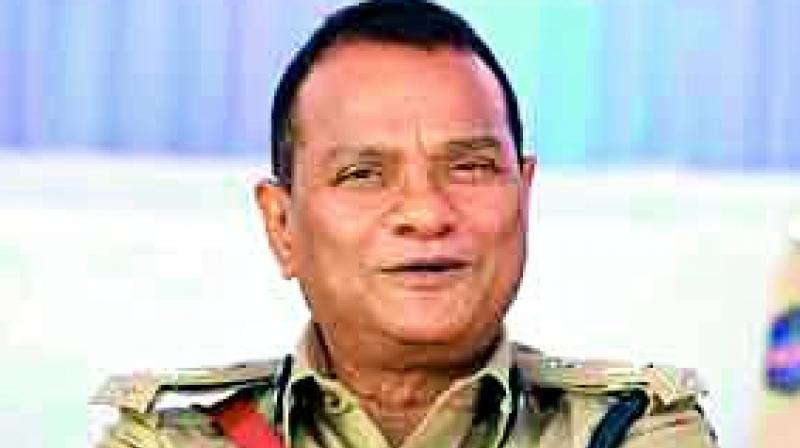Hyderabad: V K Singh penned 60 letters, irked bosses

Hyderabad: Writing frequent letters to Chief Minister K. Chandrasekhar Rao, home minister Mohd Mahmood Ali and top bureaucrats is what cost senior IPS officer V.K. Singh his job as Director General of Prisons.
In all, he wrote close to 60 letters, a majority of them with a request to convene a meeting of the Prisons Development Board (PDB), of which Mr Rao heads.
The government abruptly transferred Mr Singh recently from the post of DG Prisons and sent him to what is considered a punishment posting as commissioner, printing and stationery. In his place, the government posted a 1993 batch IPS officer, Sandeep Shandilya.
Top sources told Deccan Chronicle that Mr Singh, a 1987 batch IPS officer, wrote about 60 letters to the government in the last four years. Apart from his letters requesting a meeting of the PDB, he would write frequently seeking approval for various proposals for prison reform, purchase of vehicles for the prison staff, and buying raw material and food for the staff.
He also wrote to top bureaucrats seeking permission for allowing prisoners to take up the role of civic workers by clearing garbage, and holding a job mela to provide employment, among other things. When he got no reply to these requests, he used to send reminders.
Top of his agenda was convening a meeting of the Prisons Development Board, which had not met in eight years, for further developing the prison industry, that is, the products produced by the prisoners for sale, which had been flourishing ever since he took over as the chief of prisons. Last year alone, the turnover of the prisons industry was Rs 600 crore, a first in the history of the Telangana prisons department.
He wrote about 22 letters to the Chief Minister, around 20 to the home minister (both Mr Nayani Narasimha Reddy and Mr Mohammed Mahmood Ali) and the remaining to the Chief Secretary, advisers to the government, the DGP and other officials. Over the last one year, he had been sending constant reminders for convening the meeting of the Prisons Development Board. Despite that, the board meeting was never held.
The powers-that-be were irked to such an extent by the series of letters that he was transferred.
“They were of the view that Singh has crossed the line and had now started dictating to the government as to what they should be doing (convening meeting of the Prisons Development Board),” a senior government functionary said.
Mr Singh, who hails from Bihar, has an impeccable track record and his colleagues in the IPS fraternity, both from Telangana state and Andhra Pradesh and even back home in Bihar, were taken by surprise when the government shifted him abruptly. He had been appointed as DG Prisons in June 2014.
It is learnt that when the matter of his sudden transfer reached DGP M. Mahendar Reddy, he reportedly tried to persuade the government against it, saying that Mr Singh has been doing a tremendous amount of good work in the prisons department and he should be kept on there. But once the government had decided, the state police chief had not much of a say in the matter.
When Deccan Chronicle sought a comment from Chief Secretary S.K. Joshi on whether Mr Singh was transferred for writing frequently to the government, Mr Joshi said he had “no idea” about the matter.
Mr Singh told this correspondent: “Yes, it is true that I have written several letters for convening the board meeting in the interests of the Prisons industry and the prisoners.”
Prison department sources said that the last Prisons Board meeting was convened about eight years ago though it is mandatory that the meeting be convened every six months. While the Chief Minister is the chairman of the board, the deputy chairman is the Home Minister while the DG, Prisons is the managing director.
The meeting is supposed to take place to discuss the profits made by the Prisons industries, welfare and development of prisoners, and issues concerning the prison staff such as their transport and upgrading of technology.
While the DG Prisons is entitled to make purchases (of vehicles, raw material etc) worth Rs 10 lakh from the funds of the board, any purchase above that amount needs the approval of the chairman and deputy chairman of the board.

